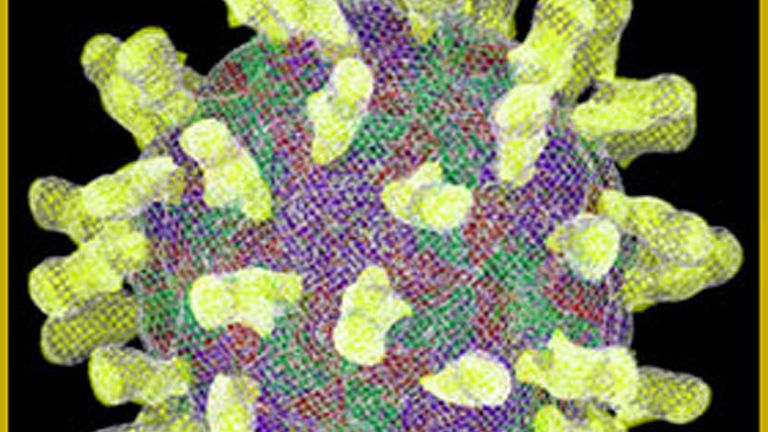Researchers are looking at whether the common cold could offer some protection against contracting coronavirus.
A recent study at Yale University found that rhinovirus – the most frequent cause of a cold – could jump-start the body’s antiviral defences, providing protection against the flu.
They discovered that the presence of rhinovirus triggered production of the antiviral agent interferon, which is part of the early immune system response to the invasion of pathogens.
Live coverage of the latest coronavirus news and updates
The researchers are now looking at whether introduction of the cold virus before infection by COVID-19 offers a similar type of protection.
Dr Ellen Foxman, of the Yale School of Medicine, said: “The common cold virus triggers the normal antiviral defences of these cells that form the lining of the airway.
“So the cells that form the lining of the airway is where all these viruses need to go to grow.
“That includes flu, common cold, COVID-19 – basically all the viruses that you get by breathing them in, they all grow in this tissue that forms the lining of your airway.”
She added: “This response, the interferon response, which is this general defence mechanism against all viruses, we know that response does work against COVID-19.
“If you do the experiment in a lab, you can apply this chemical – interferon – to cells, then you can block the virus that causes COVID-19 as well.
“So it’s possible that we’ll see the same thing, but we’re just beginning to do the experiments.
“Sometimes you see unexpected things happening so you have to just do the experiment and see what the result is and that that’s just a work in progress at the moment.”
Dr Foxman said she thought interferon-based immunity lasted about a week, maybe up to two, adding that it did not prevent infection forever.
But she explained it may provide a “temporary buffer against getting another virus” while the body is all “revved up” to fight it.
However, the expert said while she was sure this could be applied to flu, COVID-19 is unpredictable.
“One unpredictable thing is the entry receptor that COVID-19 uses to get inside your body – there have been some reports that can be increased by interferon.
“So, we just have to test how important is that, compared to having these antiviral defences at the ready, ” Dr Foxman explained.
She said that catching the virus early was key as it is a very short-term defence and contact tracing was a good way to do this.
It could also make people more inclined to participate in contact tracing, if they knew there was an early intervention available, Dr Foxman continued.
However, she stressed that this was all speculation and that the studies still needed to be conducted.

